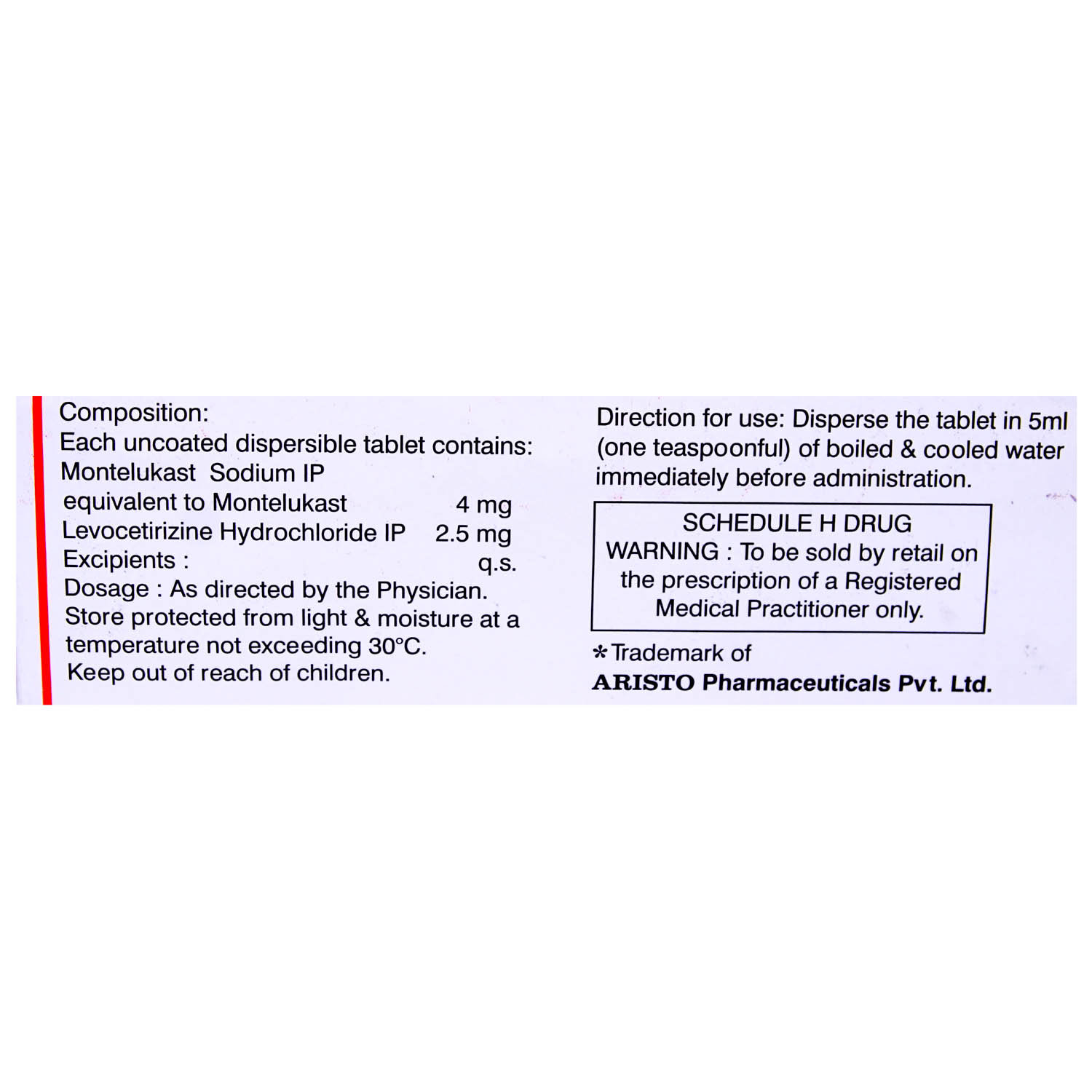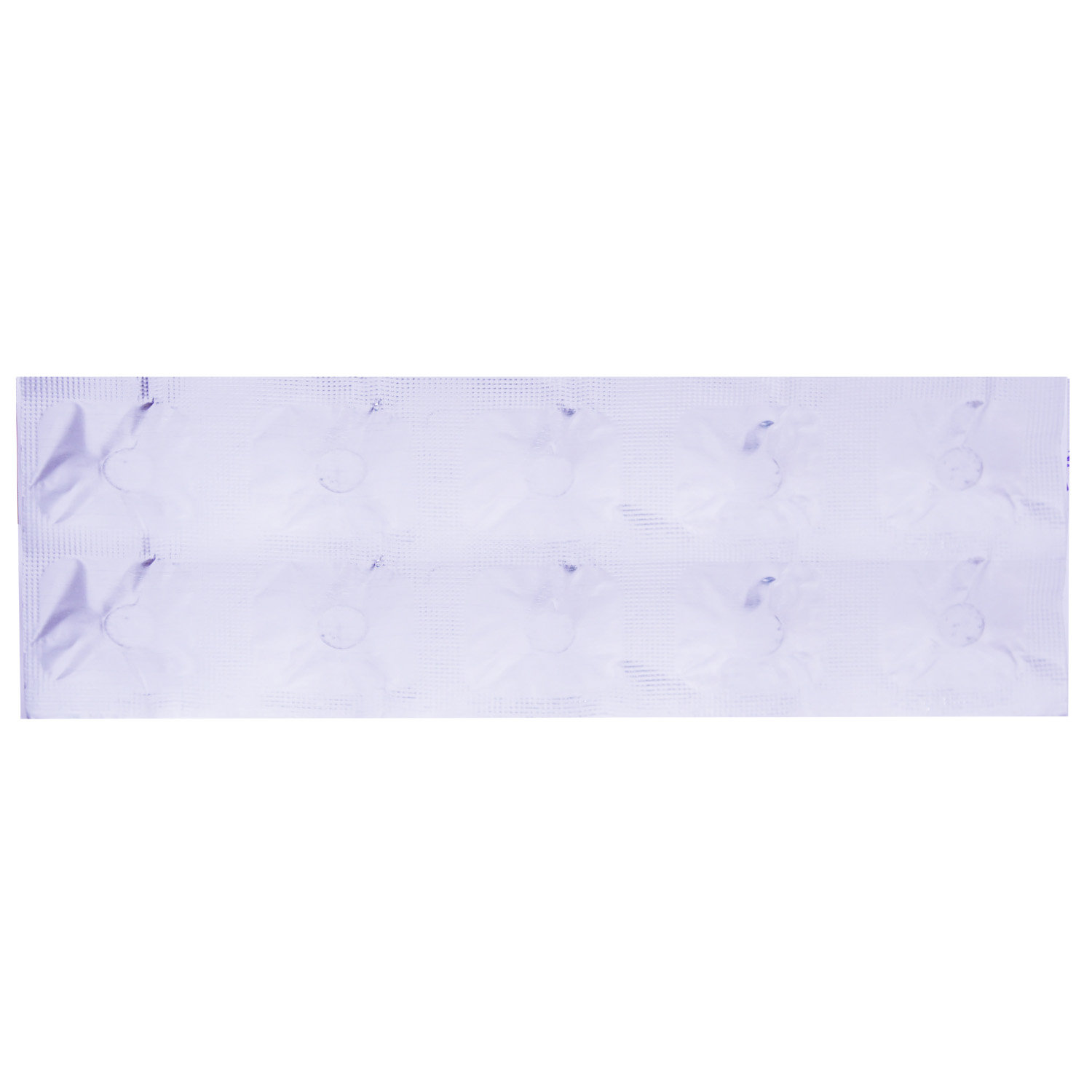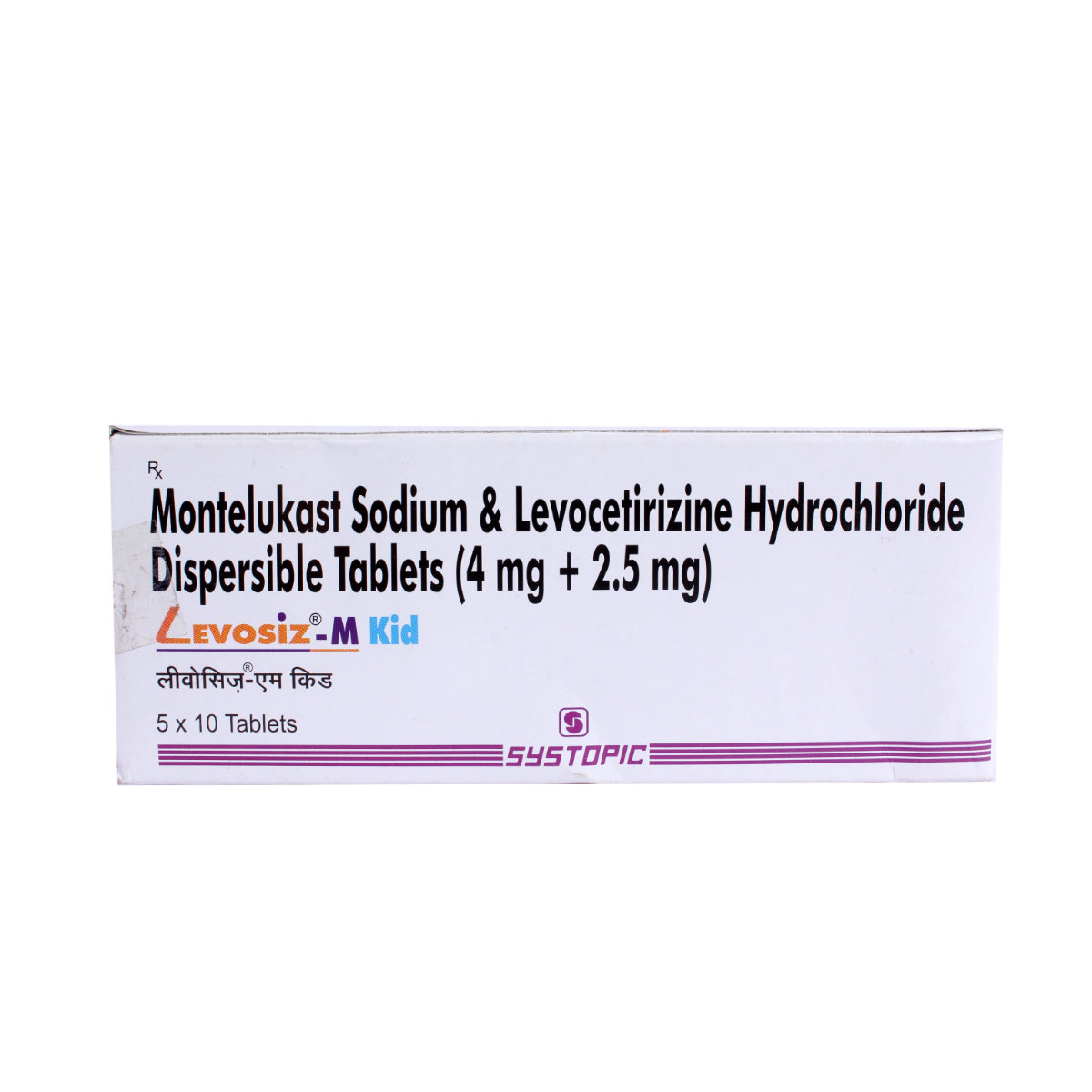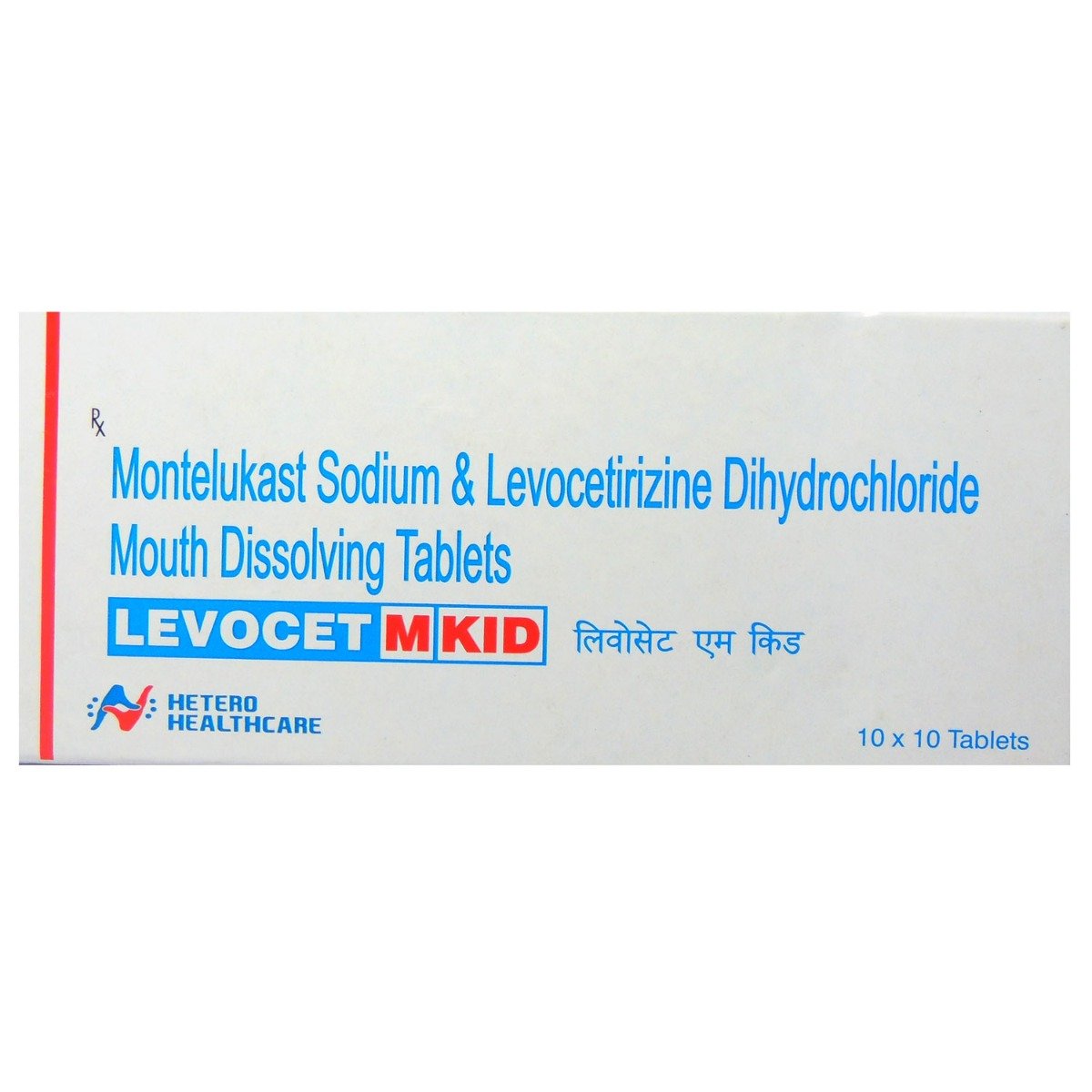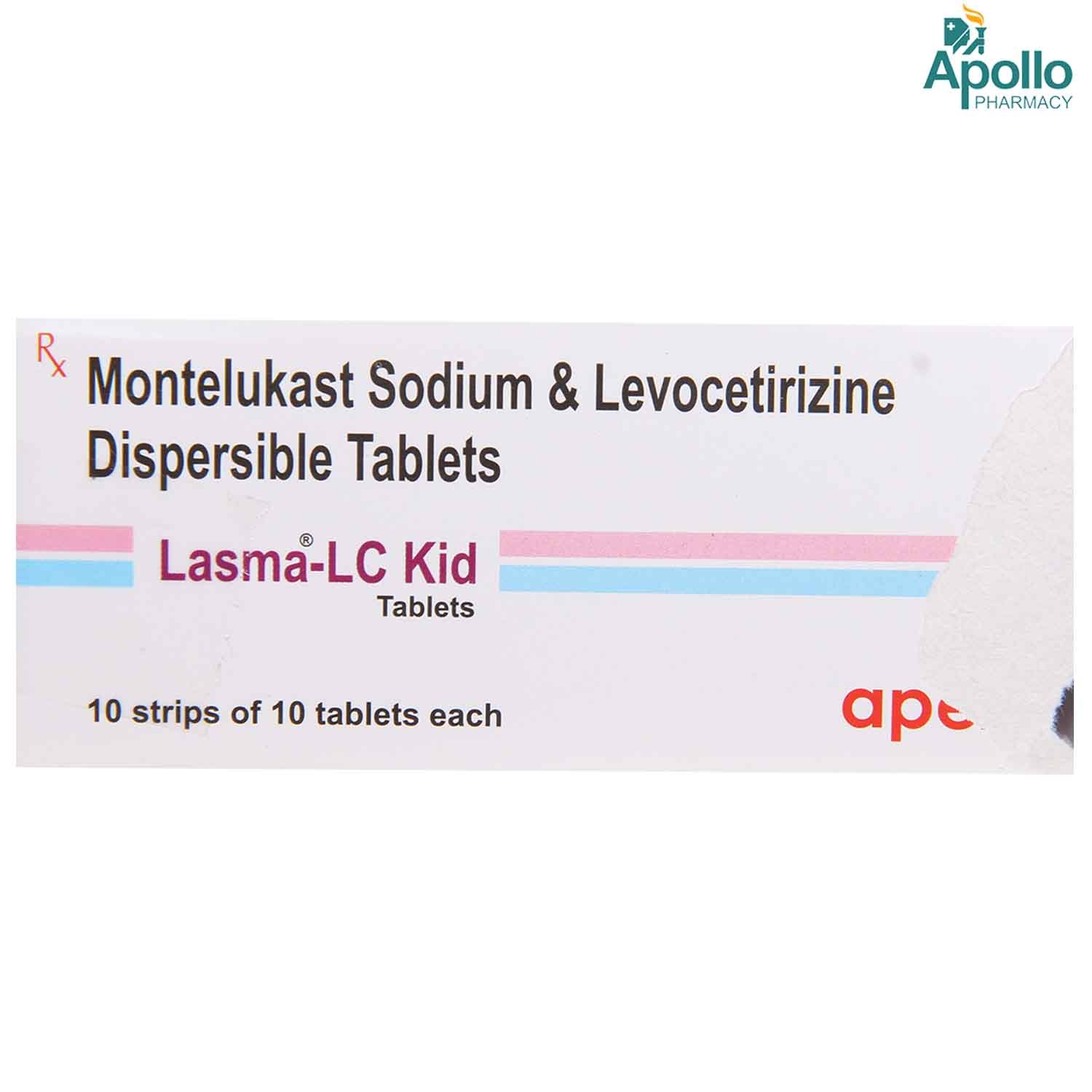Montina-L DT Tablet 10's
MRP ₹60
(Inclusive of all Taxes)
₹9.0 Cashback (15%)
Know Your Delivery Time
Provide Delivery Location

Secure Payment

India's Most Trusted Pharmacy

Genuine Products
Composition :
Manufacturer/Marketer :
Consume Type :
Expires on or after :
Return Policy :
About Montina-L DT Tablet
Montina-L DT Tablet is used to relieve and/or prevent symptoms of allergic rhinitis (seasonal and perennial). It is also used to treat rhinitis associated with asthma and urticaria. An allergy is an immune system response to foreign elements, typically not harmful to your body.
Montina-L DT Tablet contains Montelukast and Levocetirizine. Montelukast blocks a chemical messenger called leukotriene, helping to reduce inflammation and swelling in the nose. Levocetirizine works by blocking the action of histamine, a substance responsible for allergic symptoms. Together, Montina-L DT Tablet provides relief from allergic conditions.
Sometimes, Montina-L DT Tablet may cause side effects like abdominal pain, skin rash, sleepiness, headache, and fatigue. Most of these side effects of Montina-L DT Tablet are temporary, do not require medical attention, and gradually resolve over time. However, if the side effects are persistent, reach out to your doctor.
Do not take Montina-L DT Tablet if you are allergic to any of its components. Check with your doctor if you are pregnant, breastfeeding, or taking other prescribed or non-prescribed medicines. Keep your doctor informed if you have any pre-existing medical conditions.
Uses of Montina-L DT Tablet
Montina-L DT Tablet is used to treat allergic reactions. The detailed uses of Montina-L DT Tablet are as follows:
- Allergic Rhinitis: Montina-L DT Tablet effectively treats hay fever symptoms like allergic rhinitis, sneezing, a runny or itchy nose, and itchy eyes.
- Asthma Management: Montina-L DT Tablet also helps manage asthma symptoms by lowering airway inflammation; it is frequently used for long-term treatment.
- Seasonal Allergies: It reduces allergy symptoms, particularly during pollen seasons or when specific allergens are present.
- Treating Urticaria: It can treat chronic urticaria (hives), which causes itching and swelling due to allergic reactions.

Have a query?
Directions for Use
- Take Montina-L DT Tablet with or without food as advised by your doctor.
- It is advised to take Montina-L DT Tablet once daily; however, follow your doctor’s recommendation regarding the dosage and duration.
- Swallow Montina-L DT Tablet as a whole with a glass of water.
- Do not crush, chew or break it.
Key Benefits
- Montina-L DT Tablet effectively treats symptoms such as sneezing, runny or blocked nose, and watery eyes caused by seasonal allergy (hay fever) or perennial allergy (year-round allergies).
- It reduces nasal inflammation and improves breathing in individuals with both allergic rhinitis and asthma.
- Helps reduce symptoms triggered by allergens like pollen, dust, or pet dander.
- Alleviates symptoms of chronic hives (urticaria), including itching, redness, and swelling.
- Reduces the likelihood of allergy triggers by blocking the action of chemical messengers such as leukotriene and histamine.
How Montina-L DT Tablet Works
Storage
- Hydrate your body: Drink enough water to prevent dehydration and headaches.
- Calm Your Mind: Deep breathing and meditation can help you relax and relieve stress.
- Rest and Recharge: Sleep for 7-8 hours to reduce headache triggers.
- Take rest: lie down in a quiet, dark environment.
- Cold or warm compresses can help reduce tension.
- Stay Upright: Maintain good posture to keep symptoms from getting worse.
- To treat headaches naturally, try acupuncture or massage therapy.
- Over-the-counter pain relievers include acetaminophen and ibuprofen.
- Prescription Assistance: Speak with your doctor about more substantial drug alternatives.
- Severe Headaches: Seek emergency medical assistance for sudden, severe headaches.
- Frequent Headaches: If you get reoccurring headaches, consult your doctor.
- Headaches with Symptoms: Seek medical attention if your headaches include fever, disorientation, or weakness.
- Avoid driving or operating machinery or activities that require high focus until you know how the medication affects you.
- Maintain a fixed sleeping schedule, create a relaxing bedtime routine and ensure your sleeping space is comfortable to maximize your sleep quality.
- Limit alcohol and caffeine as these may worsen drowsiness and disturb sleep patterns.
- Drink plenty of water as it helps with alertness and keeps you hydrated and for overall well-being.
- Moderate physical activity can improve energy levels, but avoid intense workouts right before bedtime.
- Rest well; get enough sleep.
- Eat a balanced diet and drink enough water.
- Manage stress with yoga and meditation.
- Limit alcohol and caffeine.
- Physical activities like walking or jogging might help boost energy and make you feel less tired.
- If you experience nosebleeds or unusual bleeding after taking medication, seek medical attention right away and schedule an appointment to discuss your symptoms with your doctor.
- Your doctor may adjust your treatment plan by changing the dosage, switching to a different medication, or stopping the medication.
- If your doctor advises, take steps to manage bleeding and promote healing, such as applying pressure, using saline nasal sprays, or applying a cold compress, using humidifiers, avoiding blowing or picking your nose, and applying petroleum jelly to the nostrils.
- Schedule follow-up appointments with your doctor to monitor progress, adjust treatment plans, and prevent future episodes.
- Consult your doctor if you experience nasal congestion, runny nose, or sinus pressure after taking medication.
- Your doctor may adjust your treatment plan by changing your medication, adding new medications, or providing guidance on managing your rhinitis symptoms.
- If advised by your doctor, use nasal decongestants or saline nasal sprays to help relieve nasal congestion.
- Practice good hygiene, including frequent handwashing, avoiding close contact with others, and avoiding sharing utensils or personal items.
- Stay hydrated by drinking plenty of water and other fluids to help thin out mucus and soothe your nasal passages.
- Inform your doctor about dry mouth symptoms. They may adjust your medication regimen or prescribe additional medications to manage symptoms.
- Drink plenty of water throughout the day to help keep your mouth moist and alleviate dry mouth symptoms.
- Chew sugar-free gum or candies to increase saliva production and keep your mouth moisturized.
- Use saliva substitutes, such as mouthwashes or sprays, only if your doctor advises them to help moisturize your mouth and alleviate dry mouth symptoms.
- Avoid consuming smoking, alcohol, spicy or acidic foods, and other irritants that may aggravate dry mouth symptoms.
- Schedule regular dental check-ups to keep track of your oral health and handle any dry mouth issues as they arise.
- Preventing Vomiting (Before it Happens)
- Take medication exactly as prescribed by your doctor. This can help minimize side effects, including vomiting.
- Having a small meal before taking your medication can help reduce nausea and vomiting.
- Talk to your doctor about taking anti-nausea medication along with your prescribed medication.
- Managing Vomiting (If it Happens)
- Try taking ginger in the form of tea, ale, or candy to help alleviate nausea and vomiting.
- What to Do if Vomiting Persists
- Consult your doctor if vomiting continues or worsens, consult the doctor for guidance on adjusting your medication or additional treatment.
What if I have taken an overdose of Montina-L DT Tablet
Drug Warnings
- Do not take Montina-L DT Tablet if you are allergic to any of its components or if you have severe impairment of kidney function.
- Inform your doctor if you have liver or kidney problems, asthma, or epilepsy.
- Consult your doctor if you are pregnant or breastfeeding before taking Montina-L DT Tablet .
- Montina-L DT Tablet may cause dizziness and sleepiness. Hence, drive only if you are alert after taking this medicine.
- Avoid alcohol consumption as it may lead to increased dizziness.
- Keep your doctor informed about your medical conditions and medications to prevent any possible interactions.
Drug-Drug Interactions
Drug-Drug Interactions
Login/Sign Up
Using esketamine together with Montina-L DT Tablet may increase side effects (drowsiness, confusion, difficulty concentrating, and impairment in thinking, judgment, reaction speed, and motor coordination).
How to manage the interaction:
Taking Montina-L DT Tablet with Esketamine together can result in an interaction, but it can be taken if a doctor has advised it. Do not discontinue any medications without consulting a doctor.
Coadministration of Montina-L DT Tablet and Phenytoin may reduce the blood levels and effects of Montina-L DT Tablet. This can lead to low treatment outcomes.
How to manage the interaction:
Taking Montina-L DT Tablet and Phenytoin may interact with one another, but they can be taken together if your doctor has prescribed them. However, if you experience signs such as headache, fever, sore throat, cough, abdominal pain, diarrhoea, earache, runny nose, or behaviour and mood changes, consult a doctor immediately. Do not discontinue any medications without consulting a doctor.
Coadministration of Miconazole with Montina-L DT Tablet may increase the blood levels and effects of Montina-L DT Tablet. This increases the risk or severity of side effects.
How to manage the interaction:
Although there is a possible interaction between miconazole and Montina-L DT Tablet, you can take these medicines together if prescribed by your doctor. However, if you experience any symptoms such as fever, sore throat, cough, stomach pain, diarrhea, earache, runny nose, or uncommon, depression, confusion, difficulty concentrating, anxiety, hallucinations, irritability. memory impairment, restlessness, sleep walking, Consult a doctor immediately. Do not stop using medications without a doctor's advice.
Coadministration of Rifapentine with Montina-L DT Tablet may reduce the blood levels and effects of Montina-L DT Tablet. This can lead to low treatment outcomes.
How to manage the interaction:
Taking Rifapentine with Montina-L DT Tablet together can possibly result in an interaction, it can be taken if your doctor has advised it. If you experience increased side effects such as headache, fever, sore throat, cough, abdominal pain, diarrhea, earaches, runny nose, or behavior and mood changes consult a doctor. Do not discontinue any medications without consulting a doctor.
Coadministration of Montina-L DT Tablet and rifabutin can reduce the levels and effects of Rifabutin. This can lead to low treatment outcomes.
How to manage the interaction:
Taking Montina-L DT Tablet and rifabutin together can possibly result in an interaction, it can be taken if your doctor has advised it. However, if you experience increased side effects such as headache, fever, sore throat, cough, abdominal pain, diarrhea, earache, runny nose, or behavior and mood changes consult a doctor. Do not discontinue any medications without consulting a doctor.
Coadministration of Montina-L DT Tablet and primidone can reduce the levels and effects of Montina-L DT Tablet.
How to manage the interaction:
Taking Montina-L DT Tablet and Primidone together can possibly result in an interaction, it can be taken if prescribed by a doctor. However, if you experience any unusual symptoms, contact a doctor immediately. Do not discontinue any medications without consulting a doctor.
Drug-Food Interactions
Drug-Food Interactions
Login/Sign Up
Diet & Lifestyle Advise
- Some anti-inflammatory compounds in ginger can relax membranes in the airways, reducing coughing.
- The immune system is affected by stress, which raises the risk of illness. An individual can exercise regularly, meditate, practice deep breathing, and employ progressive muscle relaxation techniques to alleviate stress.
- Try to get 7-9 hours of sleep each night to stay fit and healthy.
- It is advised to avoid contact with known allergens (allergy-causing agents) such as pollen, dust, etc.
- Maintain personal hygiene and keep your surroundings clean.
Habit Forming
Therapeutic Class
All Substitutes & Brand Comparisons
RX
Levosiz M Kid Tablet 10's
Systopic Laboratories Pvt Ltd
₹41
(₹3.69 per unit)
31% CHEAPERRX
Levocet M Kid Tablet 10's
Hetero Drugs Ltd
₹57
(₹5.13 per unit)
5% CHEAPERRX
Lasma Lc Kid Tablet
Apex Laboratories Pvt Ltd
₹63
(₹5.67 per unit)
4% COSTLIER
Alcohol
Safe if prescribed
It is not advised to consume alcohol while taking Montina-L DT Tablet as it leads to excessive drowsiness.
Pregnancy
Consult your doctor
Please consult the doctor. There are no adequate and well-controlled studies on pregnant women. Your doctor will prescribe only if the benefits outweigh the risks.
Breast Feeding
Consult your doctor
It is not known if Montina-L DT Tablet passes into breastmilk. Consult your doctor if you are breastfeeding.
Driving
Safe if prescribed
Montina-L DT Tablet should be used with caution while driving as it may interfere with driving capabilities. You may feel drowsy or sleepy after taking Montina-L DT Tablet .
Liver
Consult your doctor
If you have a history of liver diseases or conditions, inform your doctor. Your doctor will prescribe only if the benefits outweigh the risks.
Kidney
Consult your doctor
Montina-L DT Tablet is not recommended in patients with severe renal impairment. Inform your doctor if you have a history of kidney diseases/conditions.
Children
Safe if prescribed
Montina-L DT Tablet is not recommended for children below two years without the doctor's consent. However, consult your paediatrician before giving Montina-L DT Tablet to your child.
Heart
Limited data available for the use of Montina-L DT Tablet in heart patients. Please consult your physician.
Geriatrics
Consult your doctor
Montina-L DT Tablet is safe for use in geriatric patients if prescribed by the physician.
FAQs
Montina-L DT Tablet is used to relieve and/or prevent symptoms of allergic rhinitis (seasonal and perennial). It is also used to treat rhinitis associated with asthma and urticaria.
Montina-L DT Tablet is a combination medicine containing levocetirizine (antihistamine) and montelukast (leukotriene antagonist). Montelukast works by blocking a chemical messenger (leukotriene) and reduces inflammation and swelling in the nose. Levocetirizine works by blocking the effects of a chemical messenger called histamine (responsible for allergic reactions).
Montina-L DT Tablet is a non-sedative antihistamine providing instant relief from allergic conditions; however, in some people, it may cause sleepiness and induce drowsiness.
No, Montina-L DT Tablet will not help in reducing general fever. Montina-L DT Tablet is an antiallergic and primarily helps reduce allergic reactions, including seasonal allergies known as hay fever.
No, Montina-L DT Tablet is not used to treat an asthma attack. It is used to treat allergic conditions. Talk to the doctor if you have any concerns.
Montina-L DT Tablet should be used during pregnancy only if prescribed by the doctor. Please consult the doctor if you are pregnant, planning for pregnancy or think you may be pregnant.
Do not discontinue Montina-L DT Tablet without consulting your doctor. To treat your condition effectively, keep taking Montina-L DT Tablet for the prescribed duration.
Take Montina-L DT Tablet as advised by the doctor. Take Montina-L DT Tablet at a fixed time each day, as this will help you remember to take the medicine.
Montina-L DT Tablet is a combination medicine containing Levocetirizine and Montelukast. It treats sneezing, runny nose, and allergic skin conditions due to various allergies and hay fever (seasonal allergy).
Dry mouth could be a side-effect of Montina-L DT Tablet . Limiting caffeine intake, avoiding smoking and mouthwashes containing alcohol, drinking water regularly, and chewing sugar-free gum/candy might help in stimulating saliva and thereby prevent drying of the mouth.
It is not advised to consume alcohol while taking Montina-L DT Tablet as it leads to excessive drowsiness.
No, taking Montina-L DT Tablet in higher doses will not be effective but might lead to an overdose. Therefore, avoid exceeding the recommended dosage.
Store Montina-L DT Tablet at room temperature, in a dry place. Keep out of sight and reach of children.
Montina-L DT Tablet can be taken if you have liver or kidney problems, if prescribed by the doctor. Consult the doctor if you have any concerns.
Montina-L DT Tablet may cause side effects like abdominal pain, skin rash, sleepiness, headache, and fatigue. Most of these side effects of Montina-L DT Tablet are temporary, do not require medical attention, and gradually resolve over time. However, if the side effects are persistent, reach out to your doctor.
It is advised to consult a doctor before taking other medicines with Montina-L DT Tablet to prevent any interactions.
Do not take more than the prescribed dose of Montina-L DT Tablet as it may cause an overdose. Seek immediate medical attention if you have overdosed on Montina-L DT Tablet .
Country of origin
Manufacturer/Marketer address
Disclaimer
Author Details
We provide you with authentic, trustworthy and relevant information


